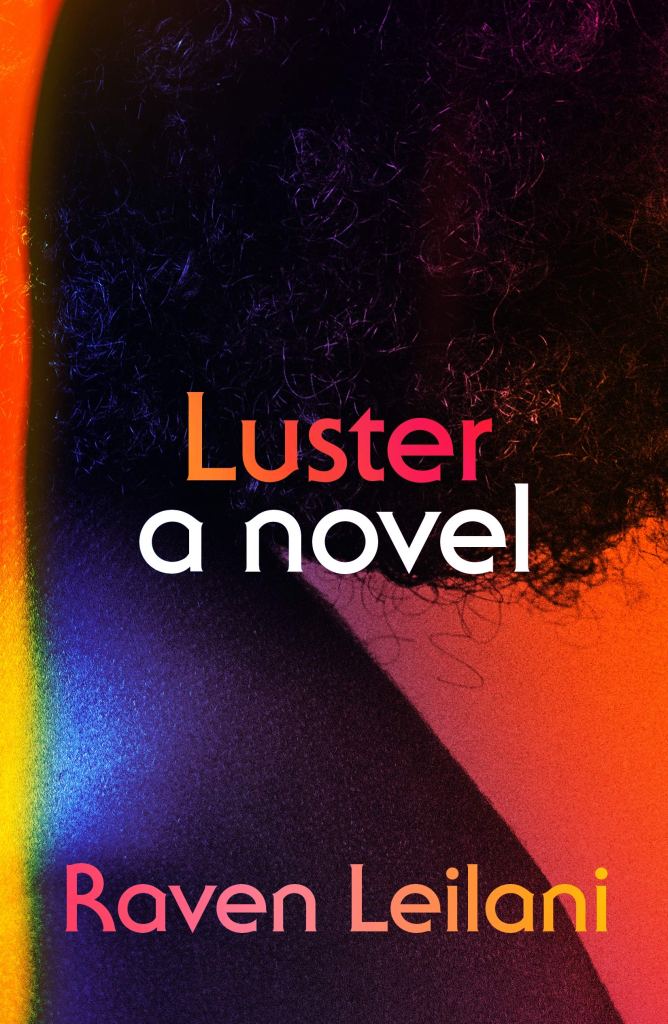For the last year I’ve been participating in a book club. Normally I’d roll my eyes at that kind of activity, but with our first book being “My Sister, the Serial Killer” by Oyinkan Braithwaite, paired with the boredom and loneliness of pandemic life, this book club couldn’t have been a better fit.
A few months ago we read “Luster,” a novel by Raven Leilani. I’d seen the book front and center on the shelves at Dog Eared Books in the Castro and had flirted with buying it several times, so when it was chosen as our book club pick I was excited.
Luster is about Edie, a 23-year-old woman living in New York City who begins a relationship with Eric, a man in an open marriage. She’s an artist and after losing her nine-to-five, finds herself struggling to survive. She’s then taken in by her boyfriend’s family and builds unlikely relationships in the process.
What’s interesting is that our book club discussion of Luster was split pretty evenly down the middle, with the moms and older generation finding it depressing and the younger women finding it funny and relatable.
I was in the latter camp. I’m a details person and this book is rich with them. Leilani pulls out all the stops for a female millennial audience. I laughed, I marveled, I cringed with knowing, I shook my damn head. You find that Edie, the main character, has and continues to live a hard life, yet you also know Edie because you’ve been Edie. As a girl, her prized possession was a Spice World VHS she received for her birthday. After one particular disappointing and sexless date, she goes home alone and eats half a rotisserie chicken. I am the exact audience for this book.
Some scenes in Luster were extremely surreal, which I also enjoyed. At one point Edie goes to Eric’s house and enters uninvited. She is caught by Eric’s wife Rebecca, but rather than the scene you expect to unfold in that situation, it is the night of their anniversary party and Edie stays as a guest. You can tell that Edie’s opinion of Eric is not very high; at one point during the party she glances over and thinks she sees Eric, but it’s actually a floor lamp. Toward the end of the party, Rebecca presents a dilapidated homemade cake to the guests while trudging through an a cappella rendition of a Billy Joel song that she serenades her mortified husband with. Reading this chapter you get the feeling that it’s a dream sequence, but no, it’s actually happening. A lot of the book felt this way; you’re reading it and just kind of going “What the fuck?”
I thoroughly enjoyed Leilani’s writing style, the descriptions using specification and defamiliarization, a writing technique I was taught in school. She uses extremely specific details to weave together the setting. You get a feel for NYC from someone who has clearly been paying attention. Here’s an example:
“It is one of those early August days where the oxygen in the air is uncoupled, dense with Drakkar Noir, old pollen, and reheated Spam.”
How perfect is that? You get all these details that at times don’t feel relevant but they paint a full picture. Sometimes the random stream-of-consciousness detail is a bit much, for example when Edie loses her job and becomes a bicycle delivery driver, Leilani lists for about two full pages all of her deliveries. But you can tell this is the author having fun with her writing, flexing those muscles.
One of the major themes of Luster is race. Edie is a Black woman dating a white man, and eventually comes to live with his wife and adopted teenage daughter, Akila who is also Black. Edie finds herself wondering if she’s been brought into the picture to help Akila, who is friendless and struggling to find herself. To drive this point home, Edie takes Akila to a salon to have her hair fixed after a bad home perm job. When they get back home, Eric tries to complement his daughter’s new ‘do but ends up having an awkward conversation that Edie has had so many times with white men before.
Toward the end of the book, Edie and Akila are stopped by the police in front of Akila’s house. Akila is incredulous, but Edie knows the truth of the situation, the profiling, the violence, what you’re “supposed to do” as a Black person in that situation. This reminds me of an article I read recently in the San Francisco Chronicle about The Call that Black men make to their mothers to say “I love you” for what may be the last time when they’re about to get pulled over by the police. The matter-of-fact way Leilani writes this scene, the way Edie just goes through the expected motions, serves as an important reminder of the not-so-new normal, the injustice that Black people face in this country every day.
_____________
In her writing, Leilani seamlessly switches back and forth between straightforward narration and poetry in prose form. If you’re an elder millennial, a writer, or just appreciate a well-written book, I highly recommend reading Luster.
